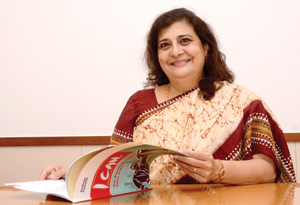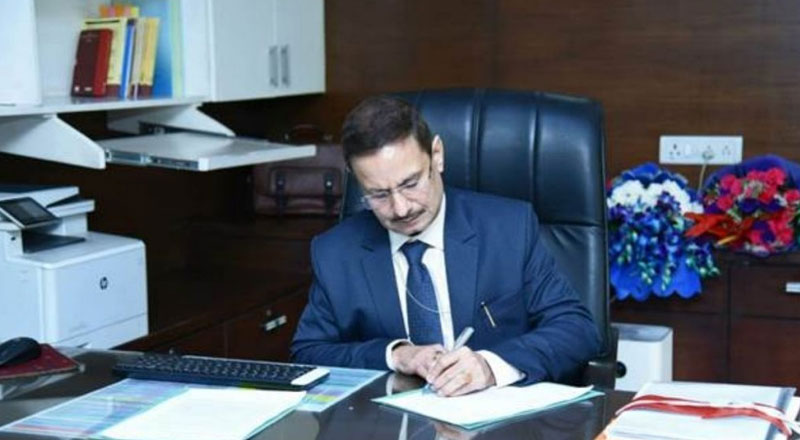When Ambuja Cement Foundation (ACF) was established in 1993, when CSR did not even exist as a concept, ACF came into existence as a result of the visionary leadership of its parent company – Ambuja Cements Limited. Sharing more about its CSR initiatives, Pearl Tiwari, Head – Ambuja Cement Foundation recollects how it has evolved in terms of its activities and the learnings it has gained in more than 2 decade long existence –
Could you trace the journey of Ambuja Cement Foundation and how instrumental has been your role in its day-to-day operations?
ACF’s journey since inception has been rather evolutionary. The founders of the Company firmly believed that with business’ growth, our neighbouring community should also prosper. In the absence of limited best practices, systems and protocol in CSR, we experimented and incorporated learnings as we moved along. However, our commitment towards people’s growth and empowerment was as robust as it is now. Witnessing ACF’s dedication and enthusiasm, several organisations partnered with us which further helped us streamline our processes and systems.
In this journey, my role has also significantly changed. During the initial phase, when the team had to be built and ACF was still establishing its identity, I played a hands-on role as we grew and was closely participating in almost all the processes – both program related as well as related to organisational development.
What are the loopholes that hinder the growth of CSR in the country according to you? How far do you feel govt. intervention is necessary?
The advent of The Companies Act, particularly schedule VII, has provided immense opportunities for corporates to adopt CSR in a systematic manner. In fact, most companies are embracing it very positively. However, in areas material to them, corporates definitely need a direction for better utilisation of resources in order to achieve the best results. In the current scenario, many companies are still grappling with the idea of strategic project planning and implementation. Government has put a law in place and can continue supervising its adoption and adherence by corporates.
Another big opportunity is encouraging corporate partnerships wherein companies can pool in resources and create a larger impact in the society. Currently, due to limited corporate partnerships, companies continue working in silos and the CSR pool has yet not reached its full potential.
It is incredible to note that many organisations, who have put in sincere efforts to achieve development objectives, have accumulated wealth of experience and knowledge. What we need is more authentic forums to share our experiences and learnings and explore better opportunities to collaborate. In the absence of this arrangement, corporates have to generally rely on external consultants and management groups. In the last few years, we have seen too many consultant organisations having cropped up to devise strategy, which could be done more efficiently if experienced organisations come together, brainstorm and devise solutions.
What is your CSR vision for the year 2017?
Instead of an annual plan, Ambuja Cement Foundation rolls out its strategic plan which is a 3 to 5 year rolling plan. ACF’s vision is to create a sustainable, prosperous society built on long-term partnerships. To achieve this, we have adopted an integrated approach to fulfil livelihood needs of the community. By working on all inter-related aspects in livelihoods that includes social, financial, natural, physical and human capitals; ACF strives to build people’s collective capacity for ensuring sustainable prosperity.
Drawing our objectives from the vision, in 2017, ACF would be focusing on strengthening partnerships to expand our work. We would continue building village level institutions and enhance their capacity to experiment, innovate and contribute to the sustainability of our initiatives.
How has the CSR mandate in the Company’s Act changed the way you plan your CSR programs?
CSR has been an integral part of ACL since inception. ACF realized its responsibility to co-exist peacefully with the host communities, much before the Section 135 of the New Companies Act was introduced in 2014. The company has made conscious efforts to involve communities in its development journey with a CSR spending of more than 2% since many years. This is the reason ACF was already well aligned with the requirements of the new mandate and has easily attained immediate compliance. Today ACL is proud to have achieved complete compliance and beyond with reference to section 135 of the Companies Act.
Could you share the major learning from your years of running successful CSR initiatives?
Success is a relative term and its definition can change with one’s perception and outlook. At ACF, we define success by program impacts and its sustainability. Unless an initiative has developed mechanisms that would ensure long-term impacts, it is not worthwhile investing in the project. However, at the same time, it is crucial to maintain the appetite to experiment new ideas and customise solutions as per the need.
In our experience, bottom-up approach works very well when working with community. We have consciously worked in consensus with the locals and executed programs with their support. We believe that people are capable in achieving their dreams. What they actually need is support and guidance.
What are some of the challenges faced while running some of your CSR campaigns and how do you address these issues?
Initiating a project in new locations is not very easy. People are apprehensive and usually take time to understand your intentions while organisation is still identifying community’s requirement. The first phase of mobilising people is usually the hardest and most sensitive. Another challenge is to instil project ownership in people and encourage them to form institutions.
ACF adopts a participatory approach in implementing all its projects. Community is an important stakeholder and plays an active role in all projects, right from the beginning. Be it need assessment, prioritisation, planning and implementation, our communities closely participate all the phases. ACF also has developed a detailed review mechanism where stakeholders including community review project progress and make suggestions.Our holistic model has been to energise, involve and enable communities has ensured people’s participation in co-creating solutions, its execution and driving it through village level institutions.
Another major challenge that we have faced is finding and retaining competent professionals in underserved geographies. To address this challenge, we have nurtured our teams with patience. ACF’s team has competently handled each and every challenge on the way. As much as funds are needed to drive is project, so is the importance of a great team, which could only be achieved by consistently nurturing them and believing in their capacity to handle the most difficult situation. ACF has invested in building its teams’ capacities so that they develop leadership skills and embrace organisational spirit in its truest sense.
While the team remains our most important resource, ACF also endeavours to groom community members as extension volunteers, who are today driving our programs with equally strong enthusiasm.
Do you also seek co-operation or participation from other NGOs for running your programs?
Yes. ACF strongly believes in the power of partnerships. ACF, in last 25 years, has been considerably successful in moving closer to realising its vision of building prosperous communities. We owe this success partly to our partners who have supported us not only financially but also with technical knowledge and inputs.
Since there are several organisations (government, civil societies, development agencies and corporates) working with strong commitment and integrity for community development, there is a huge scope of pooling in resources, sharing knowledge and best practices and upscale projects for larger impact. We are definitely open to strengthening our partnership base and utilising our implementation skills in expanding outreach.





